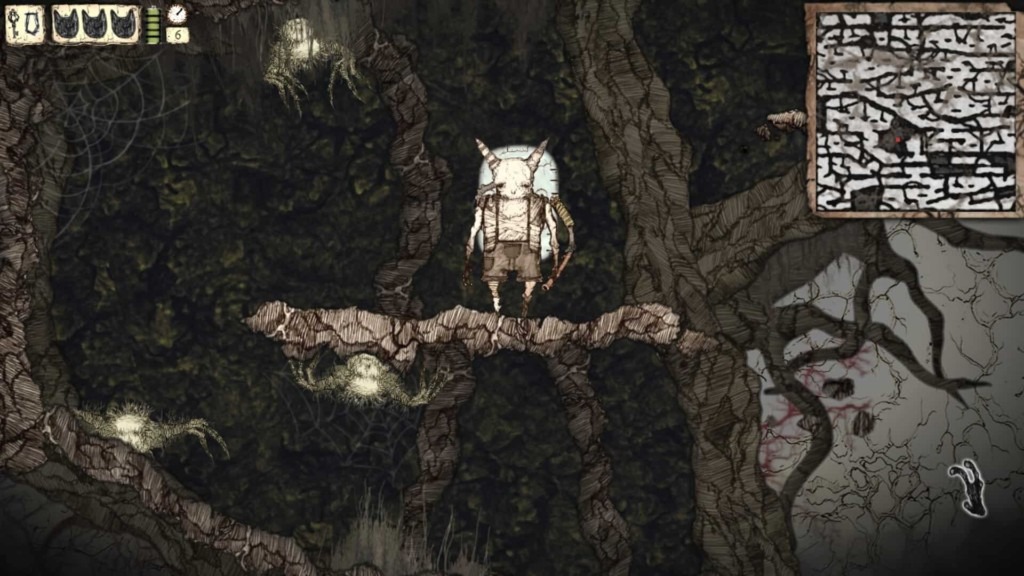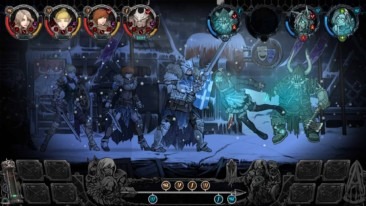Monthly Column – September 2019 Top 4 Curiosities
I may have taken a month off, but the curiosities keep coming faster than ever! With so many Steam releases, it’s easy for smaller studios with limited promotional budgets to get lost in the shuffle.
Thankfully I’m here with last month’s favorite underrated games:
Ann Achronist: Many Happy Returns
by Maybe Later Games
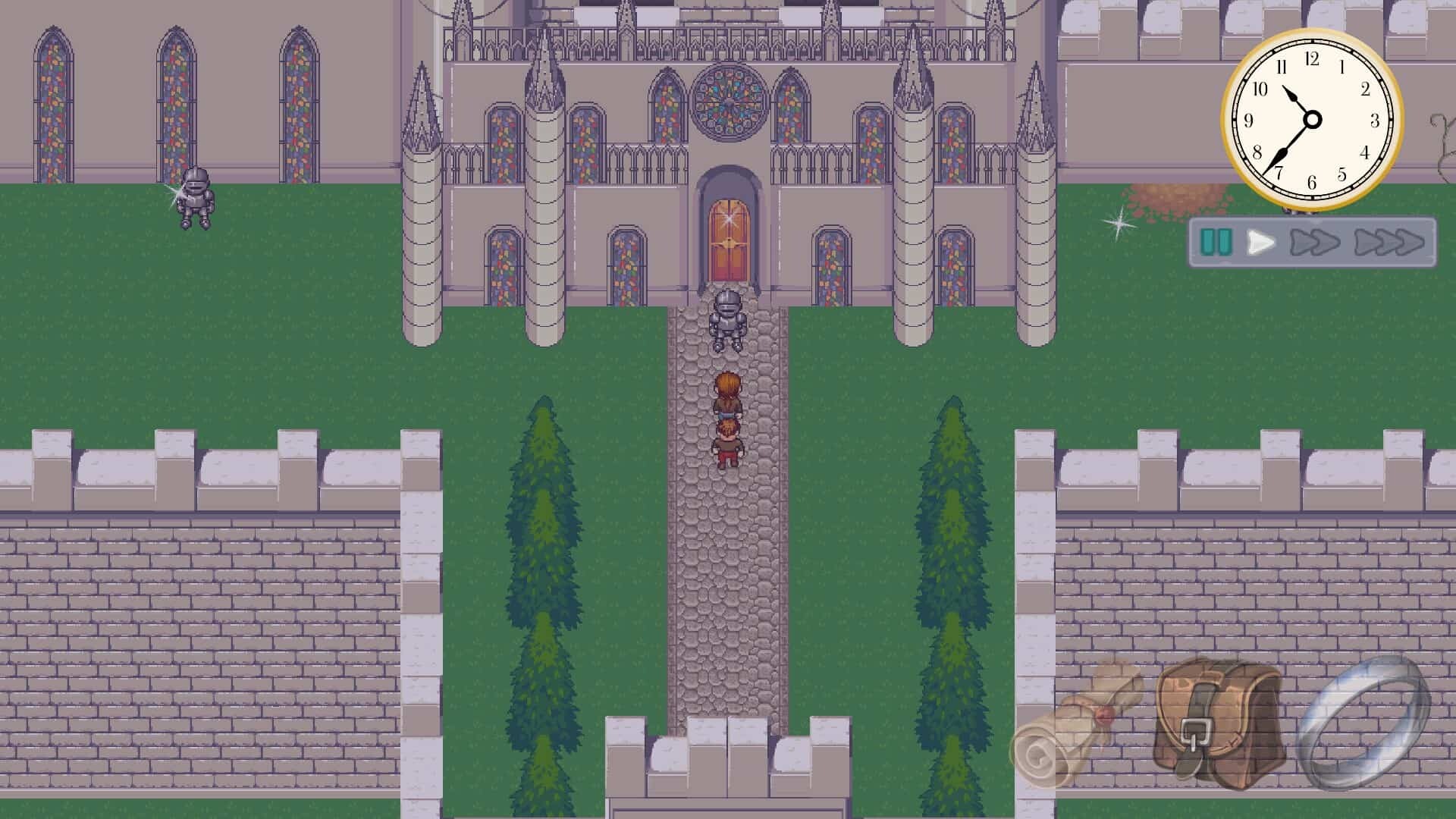
Ignore the joke title. Ann Achronist: Many Happy Returns is clever and charming, and even if it does lean a bit heavily on the “characters’ last names indicate their jobs” gimmick – Peter Peddlar is a…well…peddler – that was actually the norm in Medieval England, where the game is set, so it makes sense.
As to the game itself? Think The Sexy Brutale if instead of a creepy murder mystery it was actually a British comedy of manners. Instead of tracking down a masked killer, the eponymous Ann, an accidental time traveler, aims to improve the fortunes of her distant ancestor.
This, hopefully, will improve her own; before discovering the magical ring that sends her temporarily back in time, Ann’s a homeless teenager who spent so much time in different foster homes she never even learned to read.
The game deals with poverty and a stratified class system – both Medieval and modern – in a refreshingly delicate manner, relying neither on mockery nor self-important melodrama. Snobby nobles and street urchins alike are treated as people – flawed people, but people nonetheless – not heartless monsters.
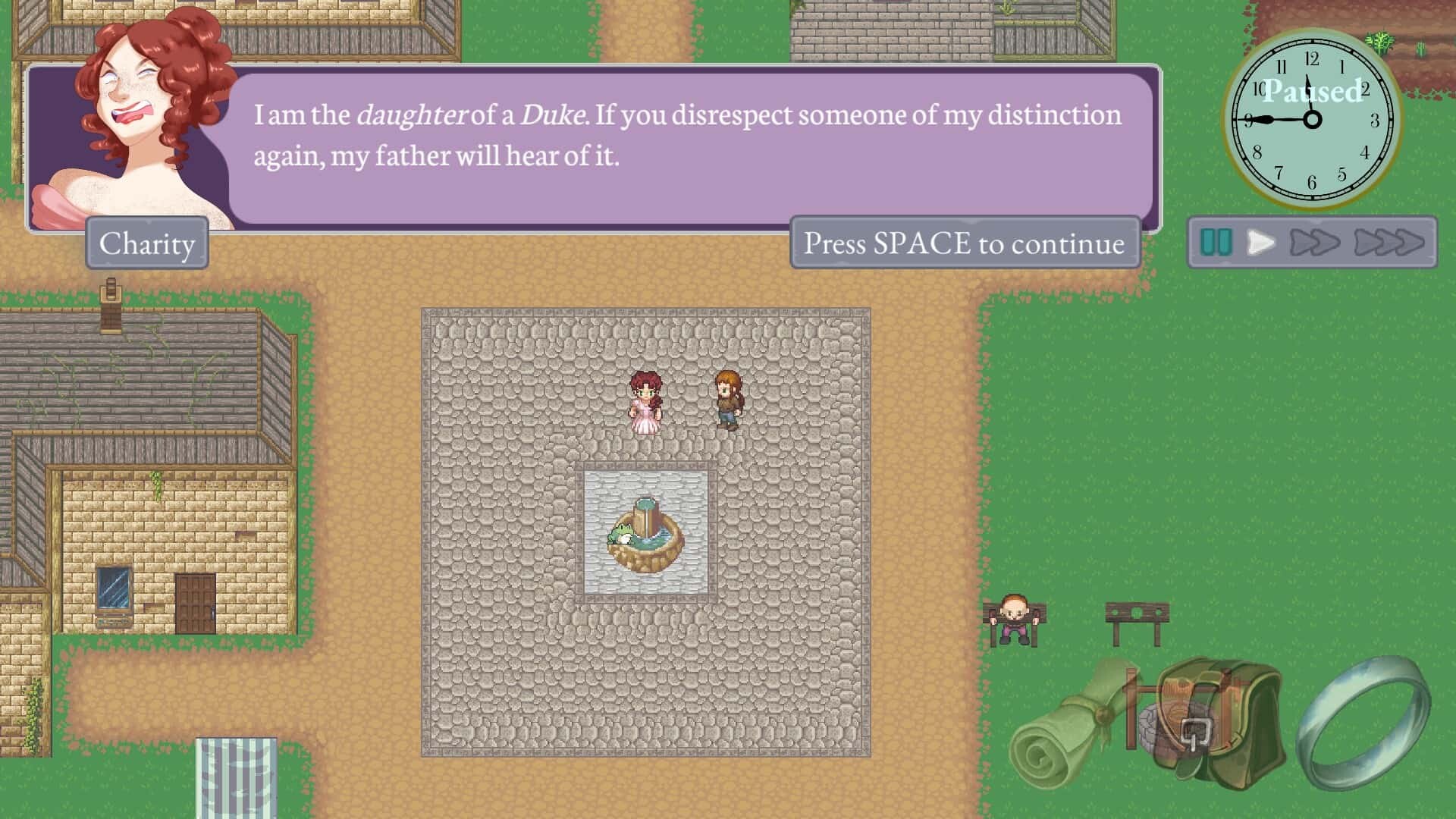
The game mechanics rely mostly on time-looping effects and the ability to unlock different “present-day” versions of Ann with different backgrounds and skills, but Ann Achronist: Many Happy Returns also throws in a couple of word-arrangement mini-games, a welcome reprieve from the usual sliding tiles puzzles. (I’m better at Scrabble than Rubik’s Cube.)
While slightly flat, simplistic graphics might turn some people off initially, this is an engaging, well-crafted take on time travel made with a lot of heart.
OSK
by Diax Game

After a pastoral introduction resplendent with twinkling dust motes on a gentle breeze and accompanied by an almost achingly beautiful strings-and-choir piece, OSK immediately turns the tables on you and plunges you into the video game equivalent of the forest fire scene in Bambi.
That’s not just a visual metaphor, either, but also a representation of how stress-inducing this game can be. Endlessly upward-scrolling jump games tend to be either hypnotically relaxing, like Egor Rezanov’s 2014 game Triera, or exercises in jaw-clenching, muscle-cramping difficulty.
David Örneklint, otherwise known as Diax Game, opted for the latter here. The one saving grace is that our main character, a tiny squirrel tasked with climbing an endless tree as volcanic eruptions incinerate the world below, jumps a bit like Sonic the Hedgehog, curling up into a little ball mid-air, so the action is familiar if by no means easy.
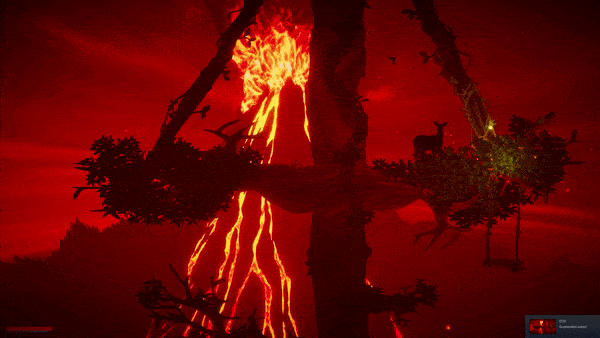
In difficulty, though, there is also beauty, and OSK really is an impressive game both thematically and artistically, combining the aforementioned Disney inspirations with a melancholic Scandinavian meditation on the nature of apocalypse (one wonders if the tree and the squirrel are references to Yggdrasill and the similarly-named Ratatosk, the world-tree and the squirrel that traverses it in Norse mythology).
I wish Örneklint had included a “Save” function, even if I understand the reasons for not doing so; my aching hands after so many double and triple-jumps would have appreciated it. Still, this is a game that’s worth a little suffering.
Memory Eater
by NemoSoda
Built around a heady – literally – concept, Memory Eater is a 2D exploration game about collecting memories while avoiding fears.
Concept aside, it’s pretty simple, really; explore the nooks and crannies of each level while avoiding – or shooting, once you’re able to – various monsters, collect each memory and escape.
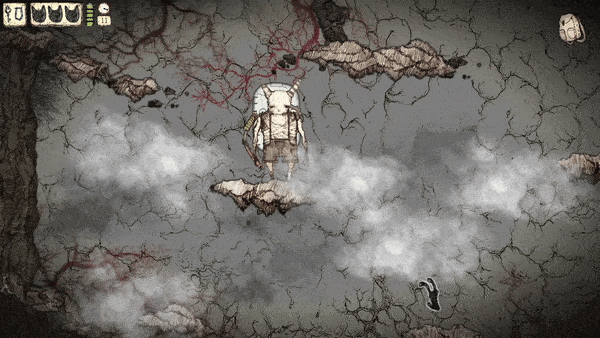
Style-wise, though, this is something else entirely, and exactly the sort of underappreciated weirdness I was thinking about when I started the Column of Curiosities. With a flat, almost hand-drawn art style and grayish, nearly monochromatic color scheme, Memory Eater looks and feels like Capsized if the central concept was paranoid delusion instead of alien ecology.
Folds, wrinkles and scribbled lines in the background hint at high school biology lessons about neurons, and the screeching ghosts and skull-faced spiders that stalk are like disturbed children’s depictions of their own fears.
Even the main character looks like a steampunk version of Frank the Rabbit from Donnie Darko, but even more terrifying.
If that weren’t enough for a recommendation, the eerie psychedelic score from St. Petersburg ambient project Uhushuhu alone is worth the game’s $1.99 price tag.
Column on the Sea
by Griffin Snow
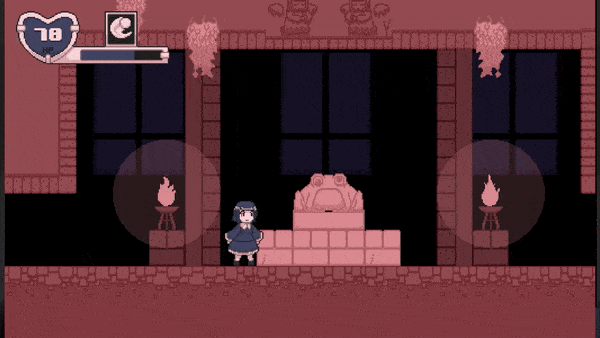
Created by online cartoonist Griffin Snow, Column on the Sea is another light 2D exploration game with a touch of combat.
Both the jumping and the fighting bits are accessibly rather than intentionally difficult, a nice change from the seemingly endless series of small indie games described as “hardcore platformers,” and any case, the action is there to deliver the plot and humor as much as anything else.
The protagonist is Laika, a treasure hunter in a puffy dress who might best be described by such adjectives as “spunky” and “plucky,” and much of the humor comes from her interactions with her boss, Erhardt, the cowardly captain back on the boat who talks with her over radio as she explores a mysterious island as they both hope to find a big score.
The motion is a bit floaty, the fighting a bit cumbersome – at least until you get yourself some rockets or fireball magic – but the lighthearted banter and minimalist 8-bit inspired portrayal of a pulpy island temple are charming enough to make up for any minor mechanical complaints.

